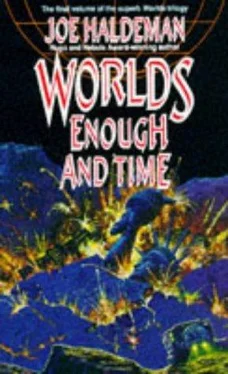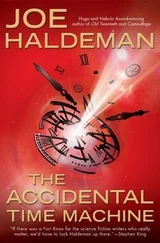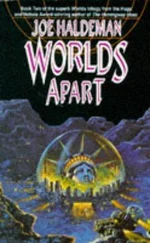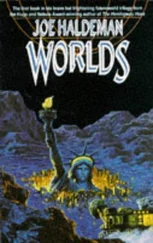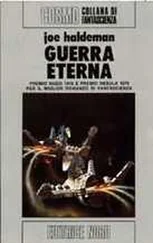My name is O’Hara Prime, just plain Prime to my friends, and although I am human I am not flesh and blood. I have lived for many centuries but will be twenty-nine years old forever.
This document is “my” story only by default: none of the other people in it is cybernetic, so none of them could have lived through the entire span. Marianne O’Hara once called me a vampire, I think playfully. It’s true that I have never been exposed to the light of day, and that I live in a box, and will not die; do not age. But from people I consume only data, not blood.
Marianne O’Hara was the flesh-human template for my personality, and we had frequent conversations after my initial programming. At first she only talked to me on birthdays and special times, like Launch Day. As she grew older, though, we would have rather long conversations regularly. She claimed that I, being forever young, helped keep her attitudes from completely ossifying.
“Forever young.” By the age of fifty she had forgotten how old you can feel at twenty-nine.
I could tell this story to another machine, if it were also human, in a few seconds of direct data transfer (and have done), but of course to tell it to “soft” humans I must resort to more complicated artifice. For your ease I will attempt to tell most of it in O’Hara’s words, in her style, at least up to the time of her death. The rest of the story is still hers in a real sense, as I hope will be made clear, but perforce I shall tell that part as seen through other eyes. She did not believe in ghosts, except for me.
(The style you are reading here is my own; that is to say, O’Hara might have written this way if she had had my standards and resources of logic, vocabulary, and so forth. She was admittedly less formal. When I begin her story I shall attempt to recreate that quality.
(Parts of her story will be in her own words, literally. She went through sporadic periods of almost compulsive journal- keeping, especially in times of trouble. She was a good diarist but obviously wrote with the eventuality of publication in mind. Her Earth diary was published before ’Home left orbit.)
I was “born,” or became self-aware, on 29 December 2092 [27 O’Neill 280], but when my programming was complete, a few weeks later, I felt not quite thirty, the same age as O’Hara. She was born 6 June 2063 [2 Freud 214], which was twenty-two Earth years before the war; thirty-four years before the starship Newhome would leave the ruins of Earth behind.
The program that created me was called “immersion,” or Aptitude Induction Through Voluntary Hypnotic Immersion. It is essentially a method of storing and transferring certain aspects of human personalities. Newhome needed to carry a broad cross-section of humanity in order to make a new start at Epsilon, but many of the people we needed either could not or would not leave the relative comfort and security of their satellite home, New New York. So we would make cybernetic copies of them, eventually to impose their aptitudes on willing volunteers, when colonization began. (Predictably few people would volunteer, of course—no matter how useless or redundant their own capabilities might be—and that is part of the story.)
Marianne O’Hara was in charge of the Demographics Committee in Newhome’s later planning stages, so she had to decide who to take along and who to plug into the machine if they could not or would not go. Unwilling to ask people to put up with something she hadn’t herself undergone, she was the first colonist to submit to the induction process. The prologue to this document, above, is a transcript of part of her induction interview. (The other voice is my own, at the age of one day.)
As she remarks, it is not comfortable. The subject is put into deep hypnosis, usually with the help of drugs, and the body is wired up to have forty-three physiological parameters monitored. Some of them are readable with noninvasive procedures—pulse, blood pressure, brain waves—but measuring such things as sphincter tension and the viscosity of vaginal mucosa requires the insertion of probes.
Then, over the course of ten or so days, the subject is interrogated rapidly and thoroughly by the machine. Physiology recapitulates emotion; thus, the subject’s reaction to various stimuli serves to build up a quantitative map of her personality. These data are then integrated into a standard Turing macro-algorithm, to create a cybernetic person whose attitudes are similar to the subject’s. More than “similar.”
Talking about this makes me feel strange. Like describing the process of conception, pregnancy, and birth might be for you: you could describe it accurately without mentioning love, or caring, or mystery. The mystery, we have in common.
Going through the inverse procedure—taking a volunteer and forcing new aptitudes onto her personality—is even less comfortable, and to O’Hara’s relief, she was forbidden to try it. The volunteer is wired with several hundred implants. Similar questions are asked, but they are presented as hypnotic suggestions, with the proper answers being the one the “inductor” would have given. Physiological responses are induced in the volunteer, to mimic the inductor’s state of mind/body at the time of her response, which can be disturbing at a deep level. But it can successfully inject “talent” where there has been none.
O’Hara was forbidden induction because she was already crammed full of talent. Four degrees, two of them doctorates, and the tenth highest tested intelligence in Newhome . A few people liked her in spite of that. Rather more were waiting for her to stumble, I see now.
Which seems unfair. No one knows better than I what she had to live with, what she had to hold in. Although she enjoyed life, by and large, almost every morning she woke up in a cold sweat, or woke up screaming in the grip of vivid memory. Her first twenty-one years were unremarkable except for scholarly achievement; then she went to Earth, and in the course of a few months there was assaulted, kidnapped, raped. She was close to one man who was then murdered; fell in love with another and had to abandon him. The day she left Earth was the day the bombs fell, and history stopped.
She was mother to me, and twin sister, which is why I suppose I am doing this. But it’s important for other reasons.
23 September 2097 [13 Bobrovnikov 290]—Two days after launch day; I guess that will be “Launch Day” from now on. Less than an hour into the second day, actually. Left both husbands and my wife in a snoring pile in John’s low-gee flat. I have a whole cot to myself and a measure of privacy, in exchange for tolerating a little more gravity. What’s a little gravity, when you’re lying down? Though of course I’m sitting now, typing.
I will miss the touch of pen on paper. I didn’t type my journal very often in New New, even though the handwritten pages would eventually be read into the computer and the paper recycled. No sentimental anachronisms aboard Newhome , like paper for casual personal use. I even left behind the diary of my year on Earth, the year cut short at seven months. A leatherbound book from Bloomingdale’s.
Bloomingdale’s. I just ate the last caviar I will have in all my life. We divided my small jar up four ways and each had two crackers’ worth. John opened a priceless bottle of Chateau d’Yquem, which also went four ways. Daniel followed with a mundane but effective liter of 200-proof chemically pure alcohol from the labs, which we mixed, variously, with Evy’s tomato juice and orange juice and Dan’s hot pepper sauce. John put all four together, saying it reminded him of the way they drank tequila in Guadalajara, a custom I had not embraced when I visited there. We had the telescope seek it out but, unsurprisingly, there was no sign of life, though we could see buildings and streets clearly. It would have been impenetrable smog a few years ago.
Читать дальше
